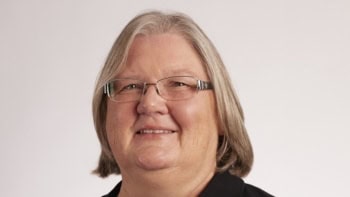Derek Robinson -- a leading member of the international fusion community -- has died at the age of 61. Robinson was fusion director at the UK Atomic Energy Authority (UKAEA) since 1996, having served the organization for over 35 years. At the time of his death he was also vice-president of publishing for the Institute of Physics and chairman of the board of IOP Publishing.
After studying physics at Manchester University, Derek Robinson joined the Atomic Energy Research Establishment, Harwell — the forerunner of the UKAEA — in 1965. He began by carrying out fundamental studies of plasma turbulence at Harwell’s ZETA fusion experiment. In 1968 he spent a year working with scientists on the T3 tokamak at the Kurchatov Institute in Moscow, where he performed seminal work on the theory of instabilities in plasmas. This work helped to convince a previously sceptical community that the tokamak device was the way forward for fusion.
In 1970 Robinson joined the UKAEA’s Culham laboratory, and began carrying out research on a range of other magnetic-confinement devices. He was a driving force behind Culham’s experimental fusion programme, including the COMPASS tokamak experiment and then the START and MAST spherical tokamak devices. Robinson also collaborated extensively with fusion scientists from many countries, including Japan, China, Korea and Brazil.
In 1990 Robinson was appointed UK member to the Joint European Torus (JET) project at Culham, and six years later became a member of its board. He was elected fellow of the Royal Society in 1994, and became fusion director at UKAEA in 1996. Robinson, who was a fellow of the Institute of Physics, was also actively involved in the design of the International Thermonuclear Experimental Reactor (ITER).
“Derek’s untimely death is a great sadness and loss for all his colleagues at Culham and the wider international fusion community,” said Jack Connor, head of theory at Culham. “Derek committed his life to fusion and the fact that fusion research finds itself in such a positive position is in no small measure to his untiring and effective efforts at both the political and scientific levels. His enthusiasm for the physics of fusion was apparent to all he met.”
Physicists in Russia also mourned the loss of a well-liked colleague. “Derek Robinson was highly respected in Russia ever since his visit in 1968,” said Evgeny Velikhov, president of the Kurchatov Institute. “His measurements of the electron temperature profiles in the T-3 plasma led to the beginning of active research on tokamaks all over the world. Derek was known for his brilliant scientific research and bright personality. He was an extremely friendly, charming, clever and intelligent person, who will be remembered by all who met him.”



